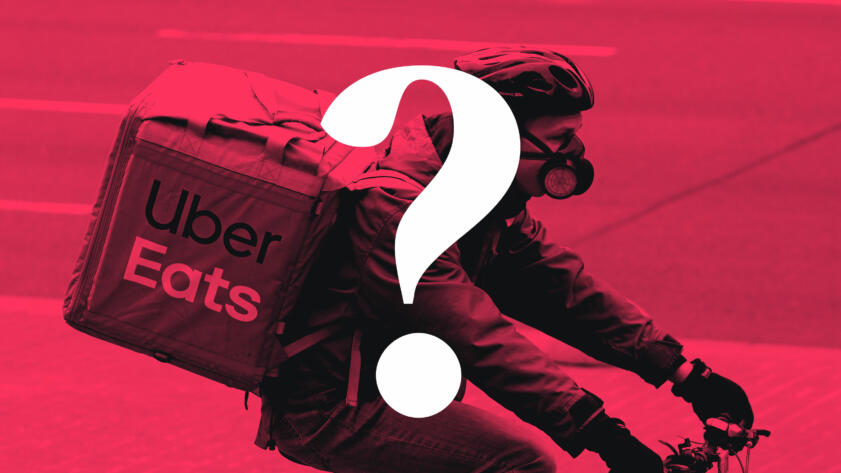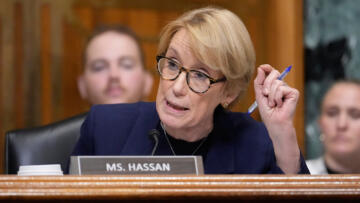With 250 million Americans now ordered to shelter at home and similar orders for “social distancing” in place nationwide, more and more of us are inside, relying on so-called gig workers to handle our business outside. To pick up our medicine. To shop for our groceries and deliver our takeout food. To drive us to urgent appointments in lieu of public buses and trains. They face far greater exposure to the coronavirus we’re fleeing, often for a low financial return.
The pandemic has given rise to the language of war, and gig workers are among those braving the “front lines” in our battle with COVID-19. But it’s also clear that these contractors, who work on-demand jobs and who are often immigrants lacking health insurance, are among the most vulnerable in our workforce, facing financial and health risks with few benefits or safety-net protections.
This week, workers at Instacart, Amazon and Whole Foods staged protests asking for hazard pay, more access to paid sick leave, and hand sanitizer and disinfectant wipes, among other demands. On the eve of the strike, Instacart announced that it was working with a third-party to manufacture sanitizer to distribute to its shoppers and removing from the app the option not to tip (defaulting instead to the amount of the customer’s previous tip). But workers went on strike anyway, saying the offer was insulting. They said the changes should have happened sooner, that issues of hazard pay and sick leave should have been addressed, and that the change in the default tip amount was not enough.
Gig workers’ fight for more protections preceded the arrival of the novel coronavirus; since at least 2013, Lyft and Uber have faced class-action lawsuits filed on behalf of gig workers pushing to win classification as employees rather than contractors in order to gain rights to more benefits. One such lawsuit settled for $27 million in 2017 without reclassifying workers, but others continue. The pandemic has only heightened the stakes of the battle.
How Are Companies Trying to Help Gig Workers?
The major tech companies have announced they will follow safety guidelines from the Centers for Disease Control and other authorities about hand washing, using hand sanitizer, and maintaining social distance. Food delivery apps, like DoorDash and GrubHub, have enacted “no contact” delivery options, allowing delivery people to drop off customers’ food at their doorsteps rather than face-to-face.
For ride-hailing drivers, who sit within an arm’s length of their passengers, close contact is hardly avoidable. One of the first dozen confirmed coronavirus cases in New York City was a Queens man who drove an Uber.
And in California, an Uber driver was recently quarantined and is suspected of having COVID-19. A popular blog covering the ride-hailing industry, The Rideshare Guy tells that driver’s story of picking up an Uber Pool passenger in early March who casually admitted he had been infected with the virus after a trip to Taiwan. The driver said he wiped down the seat, washed his hands, and sanitized everything. But later he took a passenger to the hospital who said he had been coughing up blood.
The California Uber driver, now under quarantine, told The Rideshare Guy that he received a payout of about $2,100 from Uber after some back and forth with the company, an amount equal to 14 days of his average daily earnings over the last six months.
Several tech companies have agreed to provide paid sick leave in the event that workers are diagnosed with COVID-19. Uber, Postmates, Instacart, and DoorDash have said they will provide up to 14 days of financial assistance for diagnosed or quarantined workers. Additionally, DoorDash will provide funds to proven housemates of others who are diagnosed, and Postmates has a fund for further financial help, regardless of diagnosis, provided that a worker lives in an area with reported cases of COVID-19, has completed at least one delivery since Feb. 25, and has a health savings account through Postmates. Lyft is also providing funds for workers diagnosed with COVID-19, though for an unspecified period.
What Are Tech Companies Not Doing?
At least two companies have struggled to provide protective gear for their workers, facing the same dwindling supplies the rest of the nation is facing. Lyft announced plans to distribute 200,000 bottles of hand sanitizer, but drivers complained on social media about not being able to get the supplies after Lyft closed its driver hubs. A spokesperson for Lyft, Campbell Matthews, said many supplies have been distributed to drivers at no cost to them, and the company is working to distribute the rest.
Workers at Instacart, whose grocery shopping service has boomed during the pandemic, are so in need of disinfectant wipes and hand sanitizer that they went on strike for a day earlier this week, sounding an alarm that rang at news outlets across the country.
Sarah Polito, an Instacart shopper based in Newark, N.Y., told MarketWatch that she spent $50 on disinfectant wipes and hand sanitizer as the coronavirus outbreak intensified. On each job, Polito wiped the inside of her delivery bags and the handlebar of her shopping cart. Still, she felt anxious. “You get flooded with emotion,” she told MarketWatch. Polito was among the Instacart workers who walked off the job, believing she deserves hazard pay. “Anybody who works at this point deserves hazard pay,” she said.
The gig workers’ newly instituted sick leave policies also have loopholes. The policies of Uber, Lyft, and Instacart do not cover contract workers who have not yet been diagnosed with COVID-19 but who, for example, are feeling sick and deciding whether to take time off or continue working and risk infecting others.
The Instacart workers who walked off their jobs this week similarly demanded broader access to paid sick leave not dependent on a COVID-19 diagnosis.
“What I would love to see them do is take a little more initiative to provide some sort of sick pay to drivers who are feeling sick and not quarantined,” said Harry Campbell, founder of The Rideshare Guy, referring to Uber and Lyft.
In California, gig workers theoretically have more protections but may not be getting them. A law went into effect in California on Jan. 1 that reclassifies most gig workers as employees, putatively giving them rights to a minimum wage, unemployment insurance, and sick leave, but Uber, Lyft, and Postmates, among other companies, have refused to comply with the law. Uber, Lyft, and DoorDash pledged to spend $90 million on a California ballot initiative to exempt them from the law, and Uber and Postmates filed a lawsuit late last year arguing that the law is unconstitutional.
Industry officials have said that designating drivers as employees would raise costs by 20 to 30 percent, risking their businesses. Lyft commissioned a study that found that a traditional 40-hour work week would force the company to let go of more than 300,000 drivers. Before the law passed, the companies argued for a third way: providing the contractors with a minimum wage, portable benefits, and collective bargaining without classifying them as employees. But labor officials, including the state building trades council, which represents construction workers, did not support the proposal, fearing that exempting Uber and Lyft would lead to similar exemptions in other industries.
What Can You Do?
With some models of the pandemic forecasting a monthslong battle with the coronavirus and many more deaths, and authorities telling citizens that we could be stuck at home for just as long, the problem of how to get essential items from the outside world is not going away soon.
For those who wish to eliminate the risk gig workers are taking on their behalf, there are now numerous sites with instructions on how people who are performing these essential tasks themselves can lessen their risk of contracting the coronavirus.
However, many people are quarantined or otherwise physically unable to leave home, and gig workers have taken these jobs (and continue to sign up for them) because they need the work. For that reason, some advocates suggest that people who need to rely on gig workers consider tipping very, very highly. After all, these workers are risking their own well-being for your grocery delivery.





